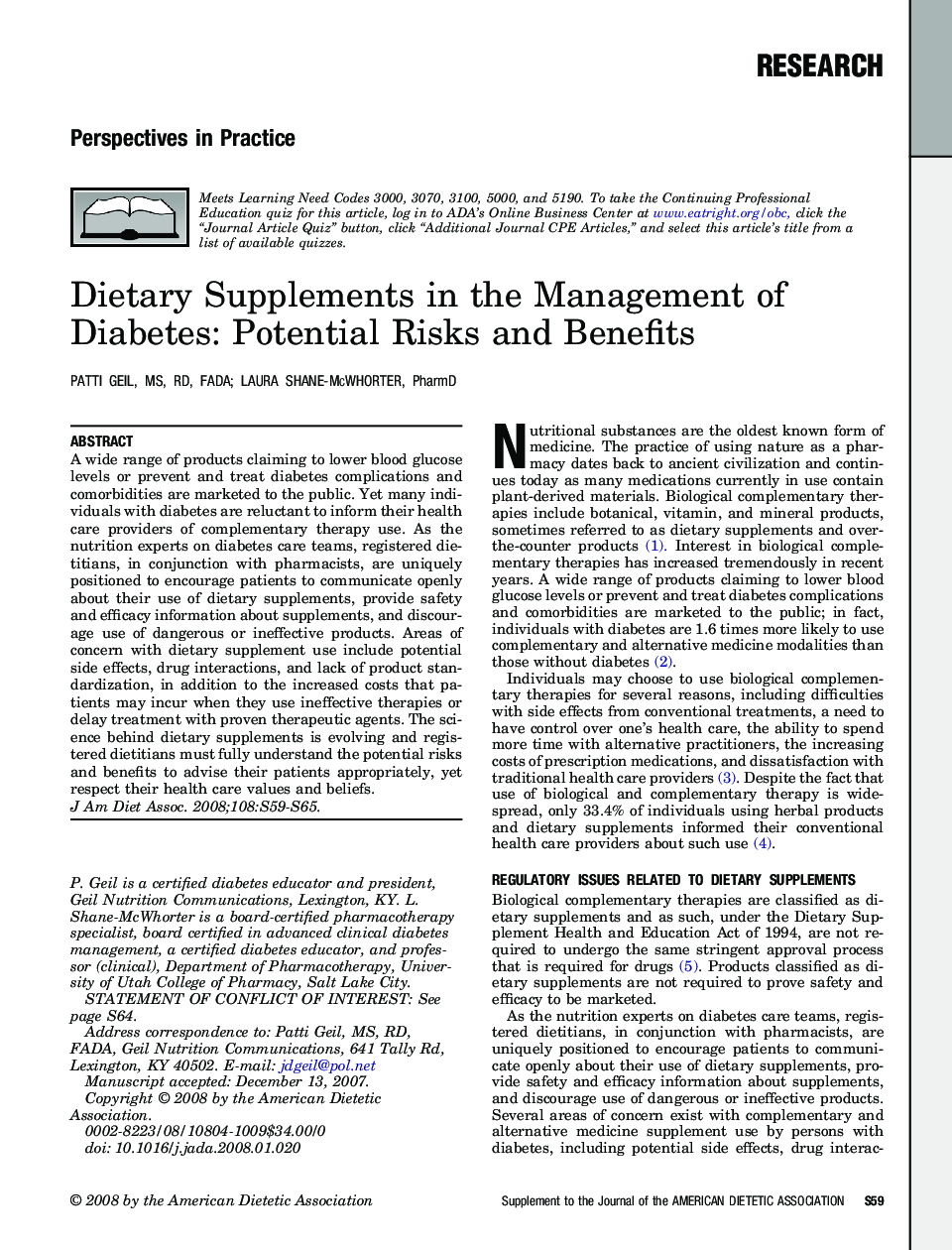| Article ID | Journal | Published Year | Pages | File Type |
|---|---|---|---|---|
| 2658378 | Journal of the American Dietetic Association | 2008 | 7 Pages |
A wide range of products claiming to lower blood glucose levels or prevent and treat diabetes complications and comorbidities are marketed to the public. Yet many individuals with diabetes are reluctant to inform their health care providers of complementary therapy use. As the nutrition experts on diabetes care teams, registered dietitians, in conjunction with pharmacists, are uniquely positioned to encourage patients to communicate openly about their use of dietary supplements, provide safety and efficacy information about supplements, and discourage use of dangerous or ineffective products. Areas of concern with dietary supplement use include potential side effects, drug interactions, and lack of product standardization, in addition to the increased costs that patients may incur when they use ineffective therapies or delay treatment with proven therapeutic agents. The science behind dietary supplements is evolving and registered dietitians must fully understand the potential risks and benefits to advise their patients appropriately, yet respect their health care values and beliefs.
